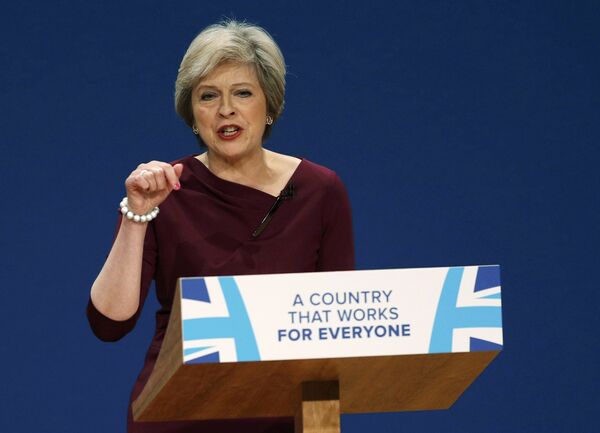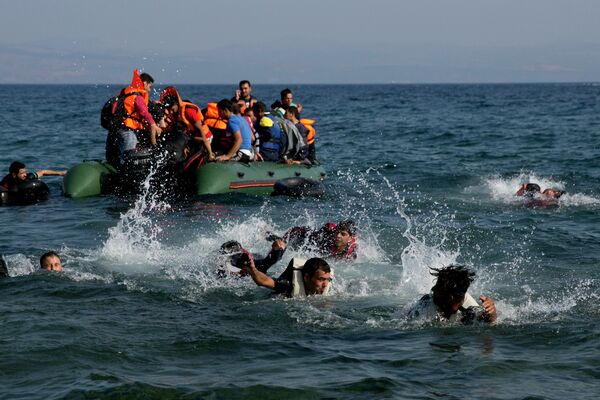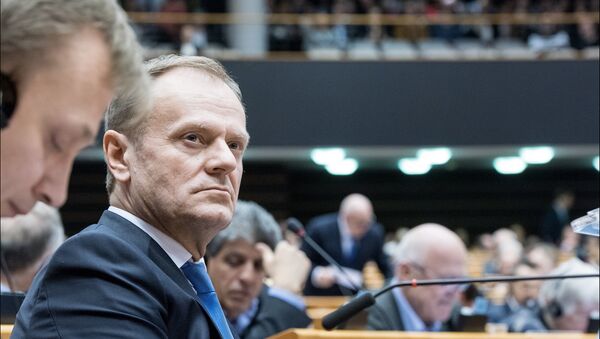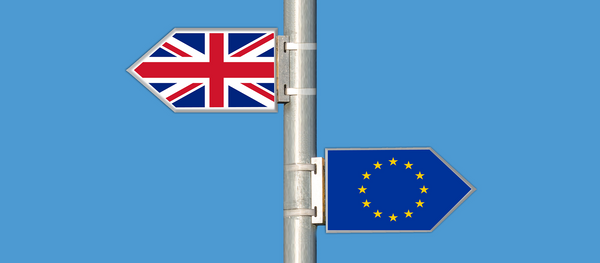Theresa May is playing her cards close to her chest, unwilling to give away Britain's negotiating position before invoking Article 50 of the Treaty of Lisbon, triggering the start of negotiations for Britain's exiting of the EU and its new deal with Europe, which she has promised to do before the end of March 2017.

However, she is likely to repeat her mantra "Brexit means Brexit", by which she means the UK will not be bound by the institutions of the EU.
However, few observers understand how Britain can maintain a trade relationship with EU member states without signing up to common agreements on regulatory issues, taxation and other standards — all of which require some kind of acquiescence towards the EU machine.
It could not be clearer. #Brexit means EXIT, lock, stock and barrel. Whatever trade deal we do with #Brussels after must not LOCK us back IN https://t.co/Lj4pJA1Sxt
— Liam Bronskie (@LiamForUK) October 20, 2016
German Chancellor Angela Merkel has made clear that — although Berlin is keen to maintain strong links with London — there can be no trade deal unless Britain conforms to the principle of the freedom of movement of EU workers, the issue which goes to the heart of Brexit and which will be the major sticking point in any negotiations.
European Council President Donald Tusk has said there will be no dialogue on Brexit at the summit. May will be allowed to address the other leaders over dinner, but Tusk is understood to have banned any protracted talks, as — technically speaking — Article 50 has not yet been triggered and, under the treaty, there can be no discussion of Brexit with a British prime minister present.
The essence of Brexit as defined in the UK referendum campaign means radically loosening relations with the EU, a de facto "hard Brexit"
— Donald Tusk (@eucopresident) October 13, 2016
Migrant Crisis
Meanwhile, the issue of immigration will raise its ugly head again, exposing deep flaws in the union, with both Hungary and Slovakia still pursuing legal action against the Commission over plans to relocate 160,000 refugees from Italy and Greece to EU member states via a quota system.
It has proved deeply unpopular with many states — particularly those in Eastern Europe.
The previous summit in Bratislava — an informal extra summit without Britain attending — ended in farce, when Italian prime Minister Matteo Renzi refused to share a stage with German Chancellor Angela Merkel and French President Francois Hollande because of differences of opinion about austerity measures and the failure to resolve the refugee crisis, a year after the deal over the 160,000 was put together.
Meanwhile there is disarray over the controversial EU-Turkey migrant deal, under which the EU was due to pay Turkey — initially — US$3.95 billion to bolster its refugee camps and accept "irregular" migrants denied asylum in Greece in return — on a one-for-one basis — for Syrian refugees in Turkey being relocated in the EU.

However, the deal has run into trouble over Erdogan's increasing grip on power, crackdown on opposition parties and the media as well as criticism of his human rights record.
The EU leaders will, once again, put on a brave face to the media, but the central most pressing issues facing the EU as it approaches its 60th anniversary — immigration, the single currency crisis and Brexit —will once again be gently kicked into the long grass in classic EU style.



